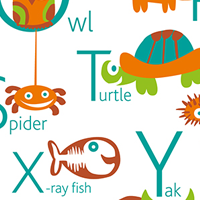Ngữ pháp Unit 7 lớp 11 Further Education
Tiếng Anh lớp 11 Unit 7 Further Education
Nằm trong seri Ngữ pháp Tiếng Anh lớp 11 theo từng Unit, tài liệu Ngữ pháp Tiếng Anh Unit 7 lớp 11 Further Education gồm toàn bộ những cấu trúc tiếng Anh quan trọng xuất hiện trong Unit 7 SGK tiếng Anh lớp 11 Further Education giúp các em ôn tập hiệu quả.
* Xem thêm: Soạn Anh 11 Unit 7 Further Education
1. PRESENT PERFECT (Hiện tại hoàn thành)
a. Form (Cấu trúc):
(+) S + have/ has + Vp2/ ed + O
(-) S + have/ has + not + Vp2/ ed + O
(?) Have/ has (not) + S + Vp2/ ed + O?
b. Uses (Cách sử dụng)
- Diễn tả 1 sự việc vừa mới xảy ra.
Ex: I have just finished the financial report. (Tôi vừa hoàn thành xong bản báo cáo tài chính.)
- Diễn tả 1 sự việc đã xảy ra trong quá khứ nhưng còn liên quan đến hiện tại.
Ex: My husband has worked for this company for 2 years. (Chồng tôi đã làm cho công ty này được 2 năm - Nghĩa là: cách đây 2 năm đã bắt đầu làm, hiện tại vẫn có thể đang làm cho công ty này hoặc không)
- Diễn tả 1 sự việc đã xảy ra ở một thời điểm không xác định trong quá khứ.
Ex: She has been in China for a long time. (Đã có một thời gian dài cô ấy ở Trung Quốc.)
- Nhấn mạnh đến trải nghiệm bản thân (the first/second/third/last… time), nhấn mạnh kết quả:
Ex: + I have seen that film three times. (Tôi đã từng xem bộ phim này 3 lần)
+ This is the first time that he has been in the USA. (Đây là lần đầu tiên anh ấy đến Mỹ)
c. Advs (Trạng ngữ nhận biết)
- just, recently, lately: gần đây, vừa mới
- before : trước đây
- already: rồi
- ever: từng
- never: không bao giờ, chưa bao giờ
- yet: chưa
- since: kể từ khi
- for: khoảng
- so far = until now = up to now = up to the present: cho đến bây giờ
d. Một số lưu ý đối với thì hiện tại hoàn thành
- Phân biệt “Since” và “For”:
since + mốc thời gian
for + khoảng thời gian
Ex: - I've known Anna since October.
- I've known Anna for two months.
- Phân biệt “yet” và “already”:
yet : dùng trong câu phủ định và câu nghi vấn
already : dùng trong câu khẳng định
Ex: - He hasn't come yet.
- I've already posted the letters.
- Thường dùng “ever”, “never” với Hiện tại hoàn thành:
Ex: - He has never been there.
- Have you ever eaten snake meat?
- Phân biệt “Have/ has been” khác với “have/ has gone”:
Ex: (a) Mr. Smith is not here at the moment. He has gone to a meeting in London.
(b) Amada has been to the travel agent. She has your tickets for Hong Kong.
Trong 2 ví dụ trên, ví dụ (a) có thể hiểu là Mr. Smith vẫn đang ở buổi họp trong khi đó ở ví dụ (b) Amada đã đi đến đó và trở về rồi.
- Một số lưu ý khác:
ü Trong các mệnh để diễn tả sự so sánh hơn nhất, số thứ tự, sự duy nhất hay số lần thực hiện hành động
→ Động từ chia ở Hiện tại hoàn thành.
Ex: - This is the most interesting story I have heard.
- This is the only foreigner I have ever known.
(1) It's the first / second / ... time + HTHT
(2) This is the first / second ... time + HTHT
Ex: - It's the first time I have driven a car.
- This is the first time she has lived in New York.
ü Its + khoảng thời gian + since + sb last did sth: Đó là khoảng thời gian kể từ khi ai đó làm gì.
Ex: I haven't seen her for 3 days. → It's 3 days since I last saw her.
2. PRESENT PERFECT CONTINUOUS (Hiện tại hoàn thành tiếp diễn)
a. Form (Cấu trúc)
(+) S + have/ has + been + Ving
(-) S + have/ has + not + been + Ving
(?) Have/ Has (not) + S + been + Ving?
b. Uses (Cách sử dụng): Diễn tả sự việc đã xảy ra trong quá khứ, kéo dài đến hiện tại và có thể tiếp tục xảy ra trong tương lai. (Nhấn mạnh tính liên tục của hành động)
Ex: I have been teaching English since I was a second-year student.
(Tôi đã dạy tiếng Anh kể từ khi tôi là sinh viên năm thứ 2, đã bắt đầu dạy trong quá khứ, hiện tại vẫn
đang tiếp tục dạy và có thể trong tương lai vẫn dạy)
c. Advs (Trạng ngữ nhận biết)
- For + time + now, và giống các trạng ngữ của thì hiện tại hoàn thành (Thường sẽ có 1 vế giải thích ở hiện tại tiếp diễn)
3. Bài tập vận dụng
Choose the correct words in brackets to complete the sentences
1. He has attended / has been attending online vocational courses twice.
2. Have you applied / Have you applying for the scholarship to study in Singapore?
3. We have waited / have been waiting for the university's reply about entry requirements for the whole week. We hope to receive it soon.
4. The British Council has used / has been using IELTS as an international standardised test of English for non-native English language speakers for a long time.
5. The university has built / has been building a new campus since May.
6. We have read / have been reading three books on vocational training to complete this project.
7. They have read / have been reading a report on a further education since last Monday. I will finish it this Sunday.
8. Mary has stayed / has been staying at a homestay for three weeks during her undergraduate programme.
9. I have applied / have been applying for a vocational scholarship three times.
1. He has attended online vocational courses twice.
2. Have you applied for the scholarship to study in Singapore?
3. We have been waiting for the university's reply about entry requirements for the whole week. We hope to receive it soon.
4. The British Council has been using IELTS as an international standardised test of English for non-native English language speakers for a long time.
5. The university has been building a new campus since May.
6. We have read three books on vocational training to complete this project.
7. They have been reading a report on a further education since last Monday. I will finish it this Sunday.
8. Mary has been staying at a homestay for three weeks during her undergraduate programme.
9. I have applied for a vocational scholarship three times.
Mark the letter A, B, C, or D to indicate the correct answer to each of the following questions.
1. I ____ English for five years. I study it at school.
A. have been learning
B. have learnt
C. learnt
D. am learning
2. You can have your book back now. I ____ it.
A. have been reading
B. have read
C. had read
D. read
3. You look upset. ____ you ____?
A. Are – crying
B. Do - cry
C. Have - been crying
D. Have - cried
4. How many times ____ you ____ that international conference?
A. did – attend
B. do - attend
C. have - been attending
D. have - attended
5. I ____ for my math textbook all day, but I ____ it yet.
A. have been looking/ haven't found
B. have looked/ haven't found
C. have been looking/ haven't been finding
D. have looked/ haven't been finding
6. How long _______________ for?
A. are you waiting B. have you been waiting
C. have you waited D. do you wait
7. We _______________ in this street for twenty years.
A. are living B. have been living
C. live D. lived
8. He _______________ in the garden since morning.
A. is working B. work
C. worked D. has been working
9. It _______________heavily yesterday.
A. is raining B. has rained
C. rained D. has been raining
10. I _______________ this laptop for three vears.
A. am using B. use C. have been using D. used
1. A | 2. B | 3. C | 4. D | 5. A |
6. B | 7. B | 8. D | 9. C | 10. C |
Put the verbs in the past simple, present perfect or the present perfect continuous tense.
1. I (try) ______ to learn French for years, but I (not succeed) _____ yet.
2. She (read) ______ all the works of Dickens. How many (you read) ______?
3. I (wait) ______ here nearly half an hour for my girlfriend; do you think she (forget) _______ to come?
4. Mary (rest) _____ in the garden all day because she (be) _________ ill.
5. Although John (study) _______ at the University for 5 years, he (not get) _____ his degree yet.
1. I (try) ___have been trying___ to learn French for years, but I (not succeed) ___haven’t succeeded__ yet.
2. She (read) ___has been reading___ all the works of Dickens. How many (you read) ___have you read___?
3. I (wait) ___have been waiting___ here nearly half an hour for my girlfriend; do you think she (forget) ___has forgot____ to come?
4. Mary (rest) ___has rested__ in the garden all day because she (be) _____was____ ill.
5. Although John (study) ____has been studying___ at the University for 5 years, he (not get) __hasn’t got___ his degree yet.
Trên đây là Cấu trúc tiếng Anh 11 Unit 7 Further Education chi tiết nhất.

















